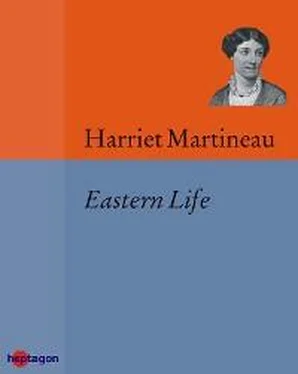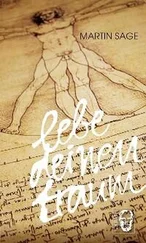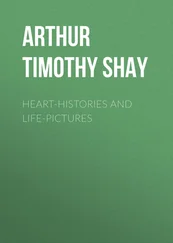Harriet Martineau - Eastern Life
Здесь есть возможность читать онлайн «Harriet Martineau - Eastern Life» — ознакомительный отрывок электронной книги совершенно бесплатно, а после прочтения отрывка купить полную версию. В некоторых случаях можно слушать аудио, скачать через торрент в формате fb2 и присутствует краткое содержание. Жанр: unrecognised, на английском языке. Описание произведения, (предисловие) а так же отзывы посетителей доступны на портале библиотеки ЛибКат.
- Название:Eastern Life
- Автор:
- Жанр:
- Год:неизвестен
- ISBN:нет данных
- Рейтинг книги:5 / 5. Голосов: 1
-
Избранное:Добавить в избранное
- Отзывы:
-
Ваша оценка:
- 100
- 1
- 2
- 3
- 4
- 5
Eastern Life: краткое содержание, описание и аннотация
Предлагаем к чтению аннотацию, описание, краткое содержание или предисловие (зависит от того, что написал сам автор книги «Eastern Life»). Если вы не нашли необходимую информацию о книге — напишите в комментариях, мы постараемся отыскать её.
Eastern Life — читать онлайн ознакомительный отрывок
Ниже представлен текст книги, разбитый по страницам. Система сохранения места последней прочитанной страницы, позволяет с удобством читать онлайн бесплатно книгу «Eastern Life», без необходимости каждый раз заново искать на чём Вы остановились. Поставьте закладку, и сможете в любой момент перейти на страницу, на которой закончили чтение.
Интервал:
Закладка:
I do not know whether all the primitive music in the world is in the minor key; but I have been struck by its prevalence among all the savage, or half-civilized, or uneducated people whom I have known. The music of Nature is all in the minor key – the melodies of the winds, the sea, the waterfall, birds, and the echoes of bleating flocks among the hills: and human song seems to follow this lead, till men are introduced at once into the new world of harmony and the knowledge of music in the major key. Our crew sang always in unison, and had evidently no conception of harmony. I often wished that I could sing loud enough to catch their ear, amidst their clamour, that I might see whether my second would strike them with any sense of harmony: but their overpowering noise made any such attempt hopeless. – We are accustomed to find or make the music which we call spirit-stirring in the major key: but their spirit-stirring music, set up to encourage them at the oar, is all of the same pathetic character as the most doleful, and only somewhat louder and more rapid. They kept time so admirably, and were so prone to singing, that we longed to teach them to substitute harmony for noise, and meaning for mere sensation. The nonsense that they sing is provoking. When we had grown sad under the mournful swell of their song, and were ready for any wildness of sentiment, it was vexatious to learn from Alee what they were singing about. Once it was, »Put the saddle on the horse. Put the saddle on the horse.« And this was all. Sometimes it was, »Pull harder. Pull harder.« This was expanded into a curious piece of Job's comfort, one evening when they had been rowing all day, and must have been very weary. »Pull hard: pull harder. The nearer you come to Alexandria, the harder you will have to pull. God give help!« Another song might be construed by some vigilant people near the court to have a political meaning. »We have seen the Algerine bird singing on the walls of Alexandria.« Another was, »The bird in the tree sings better than we do. The bird comes down to the river to wash itself.« The concluding song of the voyage was the best as to meaning, though not as to music – in which I must say I preferred the pathetic chaunt about the horse and saddle. As we were approaching Cairo on our return, they sang, »This is nearly our last day on the river, and we shall soon be at the city. He who is tired of rowing may go ashore, and sit by the sakia in the shade.« I may observe that if the dragoman appears unwilling to translate any song, it is as well not to press for it; for it is understood that many of their words are such as it would give European ears no pleasure to hear.
The water-wagtails were very tame, we observed already. They ran about on the deck, close to our feet as we sat, and looked in at our cabin windows in the most friendly manner. Next morning, we began to acquire some notion of the multitude of birds we were to see in Egypt – a notion which, I think, could hardly be obtained anywhere else. On a spit of sand, I saw, when I came forth, a flock of pelicans which defied counting, while a flight, no less large, was hovering above. A heron was standing fishing on another point: clouds of pigeons rose above every group of dwellings and clump of palms; and multitudes of geese occupied the air at various heights; now in strings which extended almost half across the sky, and now furling and unfurling their line like an immeasurable pennon. The birds of Egypt did not appear to us to be in great variety or remarkable beauty; but from their multitude, and being seen in all their wildness, they were everywhere a very interesting feature of the scenery. The ostrich I never saw, except tame, in a farmyard; though we had ostrich's eggs in Nubia. We came upon an eagle here and there – and always where we could most wish to see one. Sometimes, when in the temples, and most interested in the monuments, I caught myself thinking of home, and traced the association to the sparrows which were chirping overhead. I found swallows' nests in these temples, now and then, in a chink of the wall, or a recess of roof or niche. A devout soul of an old Egyptian, returning from its probation of three thousand years, would see that »the sparrow had found a house, and the swallow a nest for herself, where she might lay her young« – even the altars of the Lord God, so sacred once to the most imposing worship the world ever saw. Vultures are not uncommon. I used to see them sometimes during my early walk on shore, busy about the skull of some dead horse or other carcase. The crested woodpecker was often a pretty object among the mournful piles of ruins at Thebes or elsewhere, hopping about so spruce and gay. Where the Arabian hills approached the river, or the shores presented perpendicular rocks, long rows of cormorants sat perched before their holes, as still and staid as so many hermits in contemplation. On every islet and jutting point were flocks of pelicans, whose plumage looked snow-white when set off by a foil of black geese: and now and then, a single bird of this tribe might be seen in the early morning, balancing itself on the little billows, and turning its head about in the coyest manner, to prevent its long beak touching the water. The Aboo-gerdan (the paddy-bird of India) is elegant in form and most delicate in plumage, as everyone knows who has stroked its snowy feathers. It looked best when standing under the banks, or wading among the reeds in a cove. It looked most strange and out of place when perched on the back of a buffalo, as I occasionally saw it. We once saw five buffalo in one field, with each a delicate white bird perched on its back. And from the nose of one of these buffalo two little birds were at the same time picking insects, or something else that they relished.
As to the birds which have such a mysterious connexion with the sleeping crocodile, I can give no new information about them. I can only say that on almost every occasion of our seeing a crocodile, two or three of these birds were standing beside him; and that I never, saw them fly away till he had moved. It is believed in the country that these birds relieve the crocodile of the little leeches which infest his throat; and that they keep watch while he sleeps on the sand, and give him warning to escape on the approach of danger. What the crocodile does for the birds in return, we never heard. As for the pigeons, they abound beyond the conception of any traveller who has not seen the pigeon flights of the United States. They do not here, as there, darken the air in an occasional process of migration, breaking down young trees on which they alight, and lying in heaps under the attack of a party of sportsmen: but they flourish everywhere as the most prolific of birds may do under the especial protection of man. The best idea that a stranger can form of their multitude is by supposing such a bird population as that of the doves of Venice inhabiting the whole land of Egypt. The houses of the villages throughout Egypt are surmounted by a sort of battlements built for the pigeons, and supplied with fringes of boughs, inserted, in several rows to each house, for the birds to rest on. The chief object is the dung, which is required for manure for the garden, and for other purposes; but it is a mistake to say that the inhabitants do not eat them. They are taken for food, but not to such an extent as to interfere with the necessary supply of dung. One of our party occasionally shot a few wild ones, near the villages; and he met with no hindrance. But it was otherwise with our Scotch friend. Though he had asked leave, and believed he had obtained it, to let fly upon the pigeons in a village, the inhabitants rose upon him; and his Rais had some difficulty in securing his safe return to his boat. He did it by a device which his employer was shocked to hear of afterwards. He declared our friend to be the Pasha's dentist! To form a notion of the importance of this functionary, it is necessary to remember that the Pasha's having a dentist is one of the most remarkable signs of our times. That a Mohammedan ruler should have permitted his beard to be handled, is a token of change more extraordinary than the adoption of the Frank dress in Turkey, or the introduction of wine at Mohammedan dinners: and the man who was permitted by the Pasha to touch his beard must be regarded throughout the country as a person inestimably powerful with his Highness. Such a personage was our Scotch friend compelled to appear, for some way up the river; and very reluctant he was to bear the dignity to which his assent had not been asked. – A pretty bird, of the kingfisher kind apparently, coloured black, grey, and tawny, was flitting about on the shore when I took my first walk on shore this morning. And I think I have now mentioned nearly all the birds we observed in the course of our voyage.
Читать дальшеИнтервал:
Закладка:
Похожие книги на «Eastern Life»
Представляем Вашему вниманию похожие книги на «Eastern Life» списком для выбора. Мы отобрали схожую по названию и смыслу литературу в надежде предоставить читателям больше вариантов отыскать новые, интересные, ещё непрочитанные произведения.
Обсуждение, отзывы о книге «Eastern Life» и просто собственные мнения читателей. Оставьте ваши комментарии, напишите, что Вы думаете о произведении, его смысле или главных героях. Укажите что конкретно понравилось, а что нет, и почему Вы так считаете.












